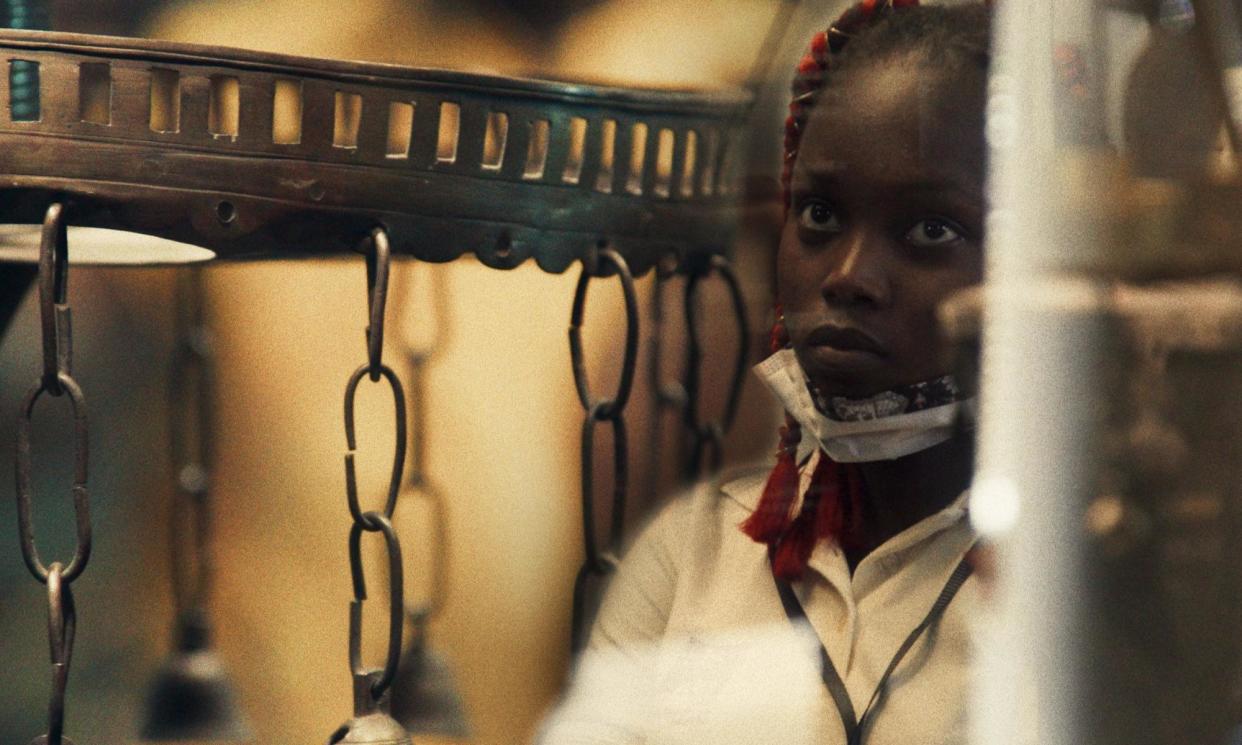Dahomey review – interrogative reverie about looted African sculptures

Franco-Senegalese actor and film-maker Mati Diop made history in 2019 as the first woman of colour to have a movie selected for competition at Cannes, the poetic migrant drama Atlantique. Now she brings an intriguing, 67-minute long documentary feature to Berlin: a kind of realist jeu d’ésprit or interrogative reverie about colonialism, culture, the past and the present. Dahomey is about the return in 2021 of looted treasures from France to the west African state of Benin, items plundered by French troops in 1892. These include the bold and mysterious zoomorphic figures of King Ghezo (who ruled what was then called Dahomey from 1797 to 1818) and his heirs Glele and Béhanzin, shown with the heads of a bird or a lion or a shark to suggest their supernatural powers. The British have their own plunder, the Benin bronzes, which in fact issued from city of Benin in modern Nigeria, some of which have also been returned.
Dahomey is narrated partly from the looted artefact’s point of view and Ghezo’s disembodied, distorted voice broods on his years of darkness and imprisonment. Some scenes show, in classically unhurried documentary style, the museum attendants packing items up and others unpacking them at the other end; one rather tensely says that the statue they’re grappling with should not be lifted by the fin but by the head. (It’s possible to imagine Frederick Wiseman making a documentary about this which would be four times as long, composed simply of scenes like these.)
But the film really comes to life in the college campus debates on the artefacts’ return, which have the punchy energy of something from the Godardian 1960s. The students are impassioned, articulate and often brilliant; many point out that only 26 items have been returned from a total of thousands, and that it is in fact a kind of insult. But others argue that this is dead-end thinking: a diplomatic channel of conversation between France and Benin has to be kept open.
Another observer comments that restitution of this sort is happening in parallel with Benin’s diaspora-descendants in Europe and the US considering their own homecoming. Still others suggest that the real culture and meaning of Benin does not in any case reside in these material objects and their whereabouts but in what Benin’s people are thinking and creating right now. It is an invigorating and enlivening film, with obvious implications for the Elgin/Parthenon marbles in the British Museum.
• Dahomey screened at the Berlin film festival and is in UK and Irish cinemas from 25 October.

 Yahoo Movies
Yahoo Movies 
